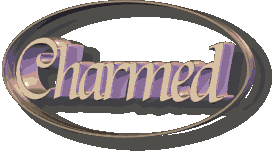|
|
| Title: How to Recognise the Indigo Child | |
| TrueWitchcraft > General > Wicca/Witchcraft | Go to subcategory: |
| Author | Content |
TipsyCad147

|
|
|
Date Posted:09/11/2014 08:38 AMCopy HTML How to Recognise the Indigo ChildThe Indigo Child is recognisable byhis or her aura and by certain other traits, according to The Indigo Childrenwebsite (owned by Kryon Writings). They come into the world with afeeling of royalty (and often act like it) They have a feeling of “deserving tobe here,” and are surprised when others don’t share that. Self-worth is not a big issue. Theyoften tell the parents “who they are.” They have difficulty with absoluteauthority (authority without explanation or choice). They simply will not do certainthings; for example, waiting in line is difficult for them. They get frustrated with systems thatare ritually oriented and don’t require creative thought. They often see better ways of doingthings, both at home and in school, which makes them seem like “system busters”(nonconforming to any system). They seem antisocial unless they arewith their own kind. If there are no others of like consciousness around them,they often turn inward, feeling like no other human understands them. School isoften extremely difficult for them socially. They will not respond to “guilt”discipline (“Wait till your father gets home and finds out what you did”). They are not shy in letting you knowwhat they need. (For some examples of a few parentsin the One can understand why many parentswould not want their child to be labeled as ADD or ADHD. The label impliesimperfection. Some may even take it to mean the child is “damaged.”Specifically, it means your child’s behavior is due to a neuro-biologicalcondition. To some, this is the same as having a malfunctioning brain or amental disorder. Understandably, emotions run high here. Treatment of childrenwith problems is a hot button issue for the mass media, attack lawyers, talkshow hosts, columnists, and others not known for their role in clarifying complicatedscientific or medical matters. Many jump on the bandwagon and attack the drugindustry and psychiatrists for overdrugging our children. Opposition isfruitless, because few will listen to those who would defend those who “abuse”children. Fewer still will bother to investigate to see whether the criticsknow what they are talking about. The National Institute of MentalHealth says that ADHD is the most commonly diagnosed childhood disorder. Itaffects some 3 to 5 percent of all school-age children. (David Kaiser says 10%of school-age children have been diagnosed with ADD/ADHD and that in some partsof the country 50% of the children are so diagnosed.) With so manychildren affected, it should be easy to find cases of misdiagnosis,inappropriate treatment, adverse drug reaction, and so on. Anecdotes of abuse,however, should not substitute for scientific studies or clinical observationsby the professionals who treat these children on a daily basis. But we all knowthat an anecdote told on Oprah or Larry King Live by Arianna Huffington orHilary Clinton is much more powerful than a controlled scientific study. Yet,those scientific studies must be done. Ritalin has been around since 1950, yetthere are no long-term studies I am aware of that show it is safe,effective, or better than any alternative. The support for its prescriptioncomes mostly from those in the trenches, the practitioners who treat themillions of children and adults with AD/HD. Support also comes from Ritalin’smanufacturer, New Jersey-based Novartis Pharmaceuticals Corp., which says thedrug “has been used safely and effectively in the treatment of millions of ADHDpatients for over 40 years,” attested by the results of 170 studies (Donohue).However, Novartis is hardly a disinterested party. In any case, no matter how manylong-term studies are done that find nothing spectacularly wrong with Ritalin,there will always be the possibility that the next one will find somethinghorrible. For example, “researchers at the University of California, Berkeley,say their study, tracking ADHD youths into adulthood, has found a connectionbetween Ritalin use and later abuse of tobacco, cocaine and other stimulants”(Donohue 2000). Is the connection strong enough to warrant worry? How can we besure it wasn’t the ADHD, rather than the Ritalin, that was the main basis forthe connection? The hype and near-hysteriasurrounding the use of Ritalin has contributed to an atmosphere that makes itpossible for a book like Indigo Children to be taken seriously. Giventhe choice, who wouldn’t rather believe their children are special and chosenfor some high mission rather than that they have a brain disorder? Source: |






